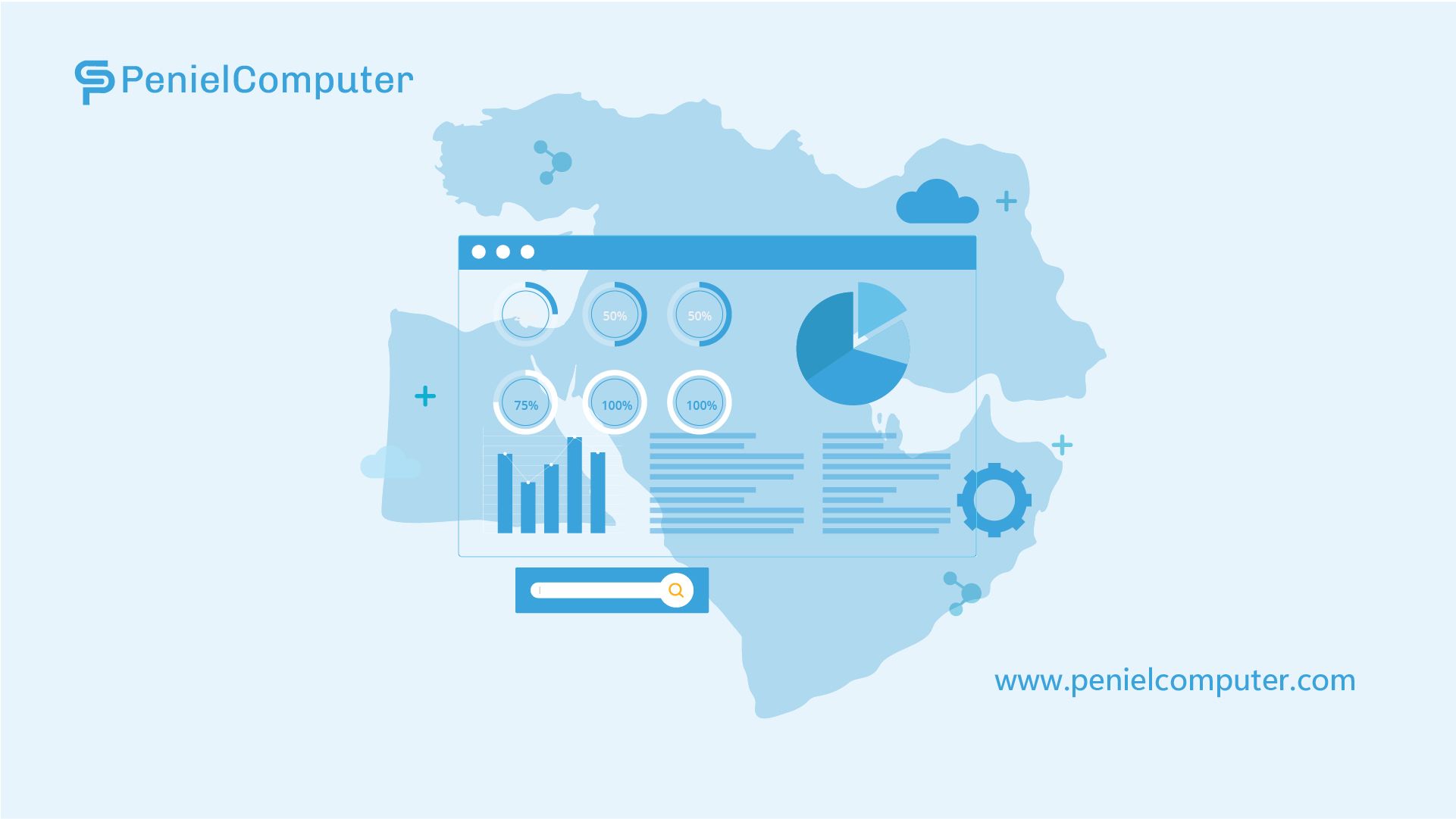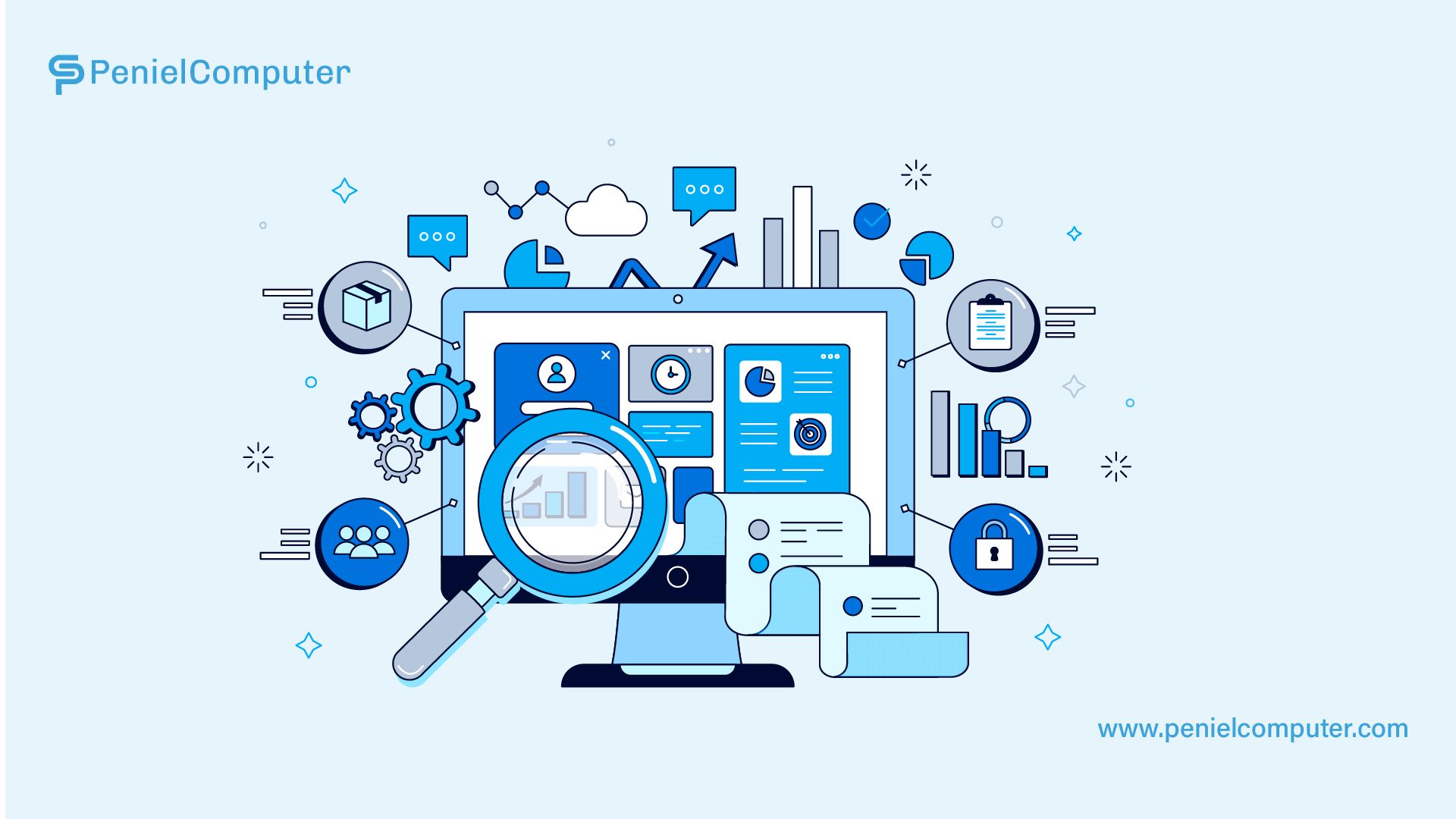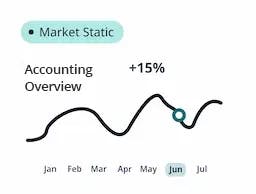
Admin
2024-10-02

In Oman, the real estate and construction industries function within a complicated and dynamic ecosystem. Real estate moves more quickly than other industries, yet it still faces several challenges in every aspect of its company. Businesses in this sector can only outperform the competition if they have strong, multi-capability real estate and cloud-based construction ERP software solutions to automate everything from planning, execution, and costing to guaranteeing regulatory compliance and cash flow visibility.
Contact us?
Table of content
- What is cloud-based ERP Software
- Why do Oman construction businesses need cloud-based ERP Software
- Challenges faced by Oman construction companies
- How will Construction ERP Software overcome them?
- How does Peniel Computer help in customizing your ERP system?
What is Cloud-based ERP software?
Cloud-based Construction ERP Software
Enterprise Resource Planning, or ERP, is a set of tools and systems used to organize and control a company&pos;s main operations. Accounting, project management, supply chain management, risk management, procurement, corporate performance management, and compliance are a few examples of these procedures.
For more precise information collecting, a building ERP software development system unifies all of your common data into a single, centralized source. This gets rid of the chance that inaccurate or redundant records will be made. Additionally, these systems are easily accessible for businesses in the construction industry as cloud-based ERP software and on-premise versions are also available.
Why do Oman construction businesses need Cloud-based ERP Software?
The Oman construction market size is projected to be USD 6.60 billion in 2023 and will increase at a compound annual growth rate (CAGR) of 3.30% to reach USD 7.76 billion by 2028. One of the main things propelling the market is the amount of money pouring into the nation. Government initiatives and projects also drive the industry which calls for massive development projects.
Because of the changing patterns that seem to indicate that investors are again paying attention to the market, Oman's real estate market is expected to continue to grow significantly and favorably. Since the previous year's third quarter, the real estate market has had a surge, driven by both increasing demand following the pandemic's dampening of demand and a solid structural basis.
Challenges Faced by Oman Construction Companies
Extended Cycle Period
Cycle time is the total amount of time needed to complete a project from start to finish. The majority of construction enterprises have lengthier cycle times, which raises the possibility of reduced margins or large labor expense losses as well as disgruntled customers due to missed deadlines.
Excessive spending on costs
A cost overrun is an unforeseen adjustment to the project budget that raises the total project cost.
Inaccurate Reports & Data
It is common for construction organizations to discover errors in material data records or equipment records. There is often a mismatch between what the system says it has and what is. Approximately one in three project decisions result in a bad consequence due to inaccurate, insufficient, inconsistent, or redundant data.
Absence of Streamlined Communication
In the construction sector, project success relies heavily on effective information sharing. This is necessary due to various professionals operating from different locations and multiple contractors working on-site during construction. There's often a breakdown in communication between office-based personnel and on-site workers. This breakdown occurs when critical information is shared solely through word-of-mouth among workers. This frequently leaves several staff members in the dark and increases the complexity of construction.
How will construction ERP software overcome them?
Data-Oriented Project Structure
An ERP can integrate all of the data sources within a construction company's network. Companies can utilize the data to plan projects more effectively and more efficiently. This includes scheduling all costs, labor needs, necessary supplies and equipment, and projecting earnings. Data-driven planning helps to shorten lead cycle times by assisting in the early identification of risks and bottlenecks during the project takeoff phase.
Estimating and Reducing Costs
Precise labor, design, raw material, and project schedule estimation are possible with ERP for the construction industry. To quantify the profit and loss for each project, companies can utilize these technologies to better manage and anticipate the time and money required for future efforts.
Handling Projects
Construction organizations may effectively manage multiple projects concurrently in real time by utilizing an ERP. By locating and allocating the appropriate resources at the appropriate time and place, ERP software also enhances project optimization.
Customizations of Workflow and Process
Having strong construction ERP software lets you design custom workflows and procedures right away. Departments can choose the sequence in which they distribute reports or data. This enhances stakeholder participation and process efficiency while also streamlining communication.
Data Security
A central database in ERP software facilitates data interchange. The system provides the best possible data security and user authorization to provide safe permission-based access to the data stored inside. Systems facilitate secure data transfer with features like server protection and data backups.
Enhanced Communication and Teamwork
In the construction sector, coordinating internal operations across all divisions requires effective communication and information exchange. ERP can provide smooth communication and real-time information sharing, which can boost project productivity and give people and groups more decision-making authority.
Fostering of Growth and Innovation
Construction ERP solutions merge cutting-edge software, external systems, and best practices for ERP installation. This integration forms a unified solution. As a construction company's business volume, project complexity, and profitability grow, the ERP system can adapt. It adjusts to meet the evolving and dynamic business needs of the company.
How does Peniel Computer help in customizing your ERP System?
In the construction business, modernizing processes and cutting down on task completion times have become critical concerns. By facilitating smooth software integration, AI software development services are a part of this transformation. Through this connectivity, businesses can better manage finances and assets, access resources, monitor project progress, enhance safety, and keep more control over their projects.
Our software development firm in Oman provides excellent ERP software development services that help you save expenses while guaranteeing the timely and well-organized completion of projects. Furthermore, our ERP integrating CRM and HRMS solutions provide improved company visibility, enabling prompt and accurate decision-making. In the current digital landscape, businesses must implement a Construction ERP to improve their performance. To simplify your construction company's workflow, get in touch with us right now.
Disclaimer: This blog serves solely for informational purposes. We do not endorse or rank any entities as "top" or "best." Our research primarily involves gathering information from sources such as Google and other search engines to provide comprehensive content. Before making any decisions, we strongly recommend consulting multiple sources. Results may vary significantly based on individual needs and requirements.
Latest News
From Our blog and Event fanpage



